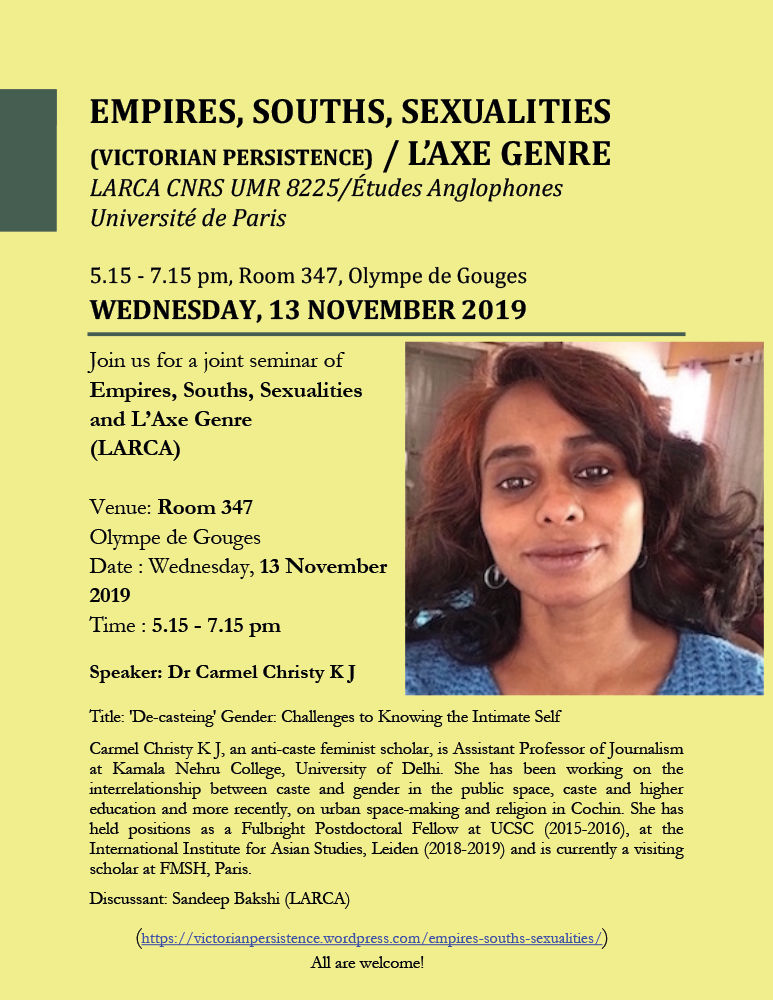13 novembre 2019 - 17 h 15 min - 19 h 15 min
Dr. Carmel Christy (Université de Delhi), ESS SESSION
Lieu
Campus Paris Diderot,
bât. Olympe de Gouges,
salle 347
Place Paul Ricoeur
75013 Paris
Decolonisation can be understood as a dynamic concept that challenges any form of power that can colonise, repress and hegemonise people. In this sense, there are layers of internal and external colonisations that deserve engagement. Many times, while discussing larger categories of hierarchies of power such as the global north and the global south, many internal colonisations garner much less attention. Caste is one such category, in combination with other categories of power such as gender and religion, which colonises people within the nation and the self in India. Caste remains as a crucial category in understanding India in colonial and postcolonial times. Any discussion of gender is incomplete without understanding the intersectionality of caste and gender in India. Caste has a role in most cases of explicit violence on women to subtle everyday experience of gender. Why is caste such an intimate companion of gender in India? If caste is steeped in hierarchies, isn’t ‘de-casteing’ important and is it possible at all? In this presentation, I discuss these questions and also point out the historical embodied acts that sustain caste and make it so difficult to shake off. ‘De-casteing’, then is a process towards ‘unbecoming’ and ‘self-fashioning’ that demands a deliberate rupture from a historical carnal continuity of caste.



